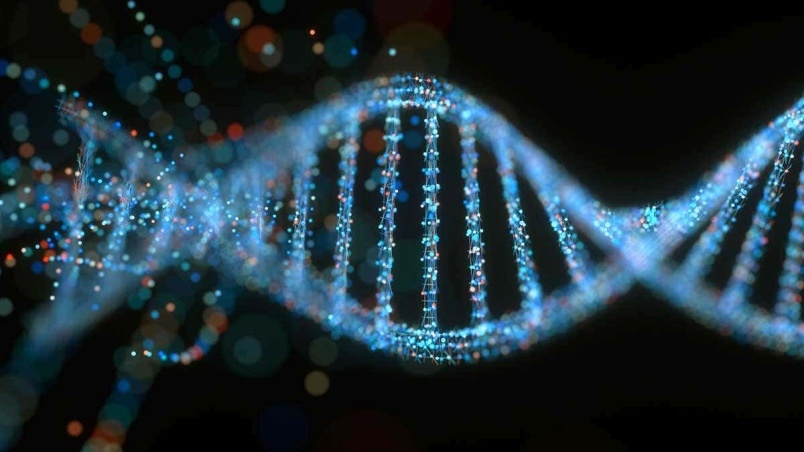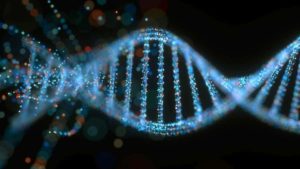Metabolic functional (epi)genomics and their abnormalities in type 2 diabetes and related disorders
Team 1 – CNRS UMR 1283/8199 – Lille University – CHU Lille – Institut Pasteur de Lille

Presentation
The project stems from the genetic and/or genomic investigation of patients with a metabolic disorder including type 2 diabetes and obesity.
In the patients with a suspicion of monogenic disease, a molecular diagnosis is systematically performed. If it falls on an actionable gene, a genomic medicine will be immediately applied. If not, we aim to identify new monogenic forms via genomics and functional biology.
In polygenic forms, we perform large-scale integrative biology studies, using holistic methods of genomics, metabolomics and proteomics, as well as complex bioinformatics and statistics. The goal is to identify novel drug targets or drugs. Furthermore, through these studies, we try 1/ to improve the characterization of patients in order to stratify them in more homogeneous subgroups, towards precision medicine, and 2/ to improve the prediction of metabolic disorders in order to prevent their occurrence.
Highlights
- Obesity is a complex, multifactorial disorder. About 5% of obese patients actually present with a monogenic form of obesity where only one mutation is sufficient to cause the disease. So far, the genes that have been found to be mutated in these monogenic forms play a key role in the leptin/melanocortin pathway which is mainly active in the hypothalamus and which regulates food intake and energy expenditure. Our laboratory has recently reported a novel monogenic form of obesity due to MRAP2 deficiency where, contrary to previously described monogenic forms of obesity, the carriers presented with hyperglycemia and hypertension in addition to obesity, suggesting that MRAP2 might play a pleiotropic role in metabolic tissues, in addition to its role in brain control of food intake and energy expenditure. This study has been published in Nature Medicine in 2019.
- Genome-wide association studies have identified 240 independent loci associated with type 2 diabetes (T2D) risk, but this knowledge has not advanced precision medicine. In contrast, the genetic diagnosis of monogenic forms of diabetes (including maturity-onset diabetes of the young (MODY)) are textbook cases of genomic medicine. Based on next-generation sequencing data in up to 75,000 individuals, we showed a significant burden of pathogenic variants in actionable MODY genes among patients with common T2D, thus implying that there should be a substantial change in care for carriers with T2D. None carriers develop diabetes before 25 years old (namely the main criterion to diagnose a MODY). Pathogenic variants in actionable MODY genes are more frequent than was previously expected in common T2D. These results open avenues for future interventions assessing the clinical interest of these pathogenic mutations in precision medicine. This study has been published in Nature Metabolism in 2020.
Members
Philippe FROGUEL
PU-PH CHU de Lille, director
ORCID number : 0000-0003-2972-0784
Amélie BONNEFOND
DR Inserm, group leader
ORCID number : 0000-0001-9976-3005
Amna KHAMIS
Post-doc
Frederic ALLEGAERT
AI
Souhila AMANZOUGARENE
IE
Toby ANDREW
Visiting lecturer
ORCID number : 0000-0001-8838-4384
Anne-Sophie ANTOINE
AI service LIGAN
Alaa BADREDDINE
IE
Morgane BARON
Post-doc
Pascale BENLIAN
MCU-PH CHU Lille
ORCID number : 0000-0002-3423-8979
Lionel BERBERIAN
IE
Mathilde BOISSEL
IE
Raphaël BOUTRY
AI Functional genetic / NGS
Mickaël CANOUIL
IR Biostatistic
Arnaud CARRIER
Post-doc
Hélène DE GAVRE
IE
Aurélie DECHAUME
IE Genetic
Fabien DELAHAYE
Post-doc
Marion DELBARRE
IE LIGAN / Quality ISO 15189
Jérôme DELPLANQUE
IR functional genetic
Mehdi DERHOURHI
IR
Julien DEROP
IE LIGAN / Quality 15189
Marc-Emmanuel DUMAS
CRCN CNRS
ORCID number : 0000-0001-9523-7024
Emmanuelle DURAND
IE NGS
Dominique ELADARI
PU-PH CHU Amiens
ORCID number : 0000-0003-1067-0844
Lise FOLON
PhD student
Stefan GAGET
IR Software engineering
Corentin GIRARD
AI Quality ISO 15189
Mélanie HOCQUET
Secretary
Marlène HUYVAERT
AI Functional genetic
Nicolas KUREZOBA
Technician
Nicolas LARCHER
Technician
Anne-Sophie LEDOUX
IE
Audrey LELOIRE
AI Functional genetic
Constance LOISELLE
EGID assistant
Hélène LOISELLE
AI Functional genetic
Jared MAINA
PhD student
Vincent MASSY
IE
Sarah MEULEBROUCK
PhD student
Lisa MOCHON
IE EGID communication
Louise MONTAGNE
MCU-PH GHICL
Lijiao NING
IE Biostatistic
Alexandre PELLETIER
PhD student
Pierrette PERIMENIS
PU-PH GHICL
Sylvie POULAIN
Technician
Inga PROKOPENKO
Visiting Professor
ORCID number : 0000-0003-1624-7457
Gilles PULVERMULLER
IR Valorisation Responsable
Sadia SAEED
Post-doc
Victoria SCHERRER
IE Functional genetic
Bénédicte TOUSSAINT
IE NGS
Emmanuel VAILLANT
IE NGS
Anne VAMBERGUE
PU-PH CHU Lille
ORCID number : 0000-0003-4307-8695
Matthias VANDESQUILLE
Isite Project Manager
Nicolas VANEECHOUTTE
IE
Vincent VATIN
AI
Martine VAXILAIRE
DR Pasteur Lille
ORCID number : 0000-0003-0361-3630
Publications
Bonnefond A, Boissel M, Bolze A, Durand E, Toussaint B, Vaillant E, Gaget S, Graeve F, Dechaume A, Allegaert F, Guilcher DL, Yengo L, Dhennin V, Borys JM, Lu JT, Cirulli ET, Elhanan G, Roussel R, Balkau B, Marre M, Franc S, Charpentier G, Vaxillaire M, Canouil M, Washington NL, Grzymski JJ, Froguel P.
Pathogenic variants in actionable MODY genes are associated with type 2 diabetes.
Nat Metab. 2020 Oct;2(10):1126-1134.
Baron M, Maillet J, Huyvaert M, Dechaume A, Boutry R, Loiselle H, Durand E, Toussaint B, Vaillant E, Philippe J, Thomas J, Ghulam A, Franc S, Charpentier G, Borys JM, Lévy-Marchal C, Tauber M, Scharfmann R, Weill J, Aubert C, Kerr-Conte J, Pattou F, Roussel R, Balkau B, Marre M, Boissel M, Derhourhi M, Gaget S, Canouil M, Froguel P, Bonnefond A.
Loss-of-function mutations in MRAP2 are pathogenic in hyperphagic obesity with hyperglycemia and hypertension.
Nat Med. 2019 Nov;25(11):1733-1738.
Saeed S, Bonnefond A, Tamanini F, Mirza MU, Manzoor J, Janjua QM, Din SM, Gaitan J, Milochau A, Durand E, Vaillant E, Haseeb A, De Graeve F, Rabearivelo I, Sand O, Queniat G, Boutry R, Schott DA, Ayesha H, Ali M, Khan WI, Butt TA, Rinne T, Stumpel C, Abderrahmani A, Lang J, Arslan M, Froguel P.
Loss-of-function mutations in ADCY3 cause monogenic severe obesity.
Nat Genet. 2018 Feb;50(2):175-179. doi: 10.1038/s41588-017-0023-6.
Falchi M, El-Sayed Moustafa JS, Takousis P, Pesce F, Bonnefond A, Andersson-Assarsson JC, Sudmant PH, Dorajoo R, Al-Shafai MN, Bottolo L, Ozdemir E, So HC, Davies RW, Patrice A, Dent R, Mangino M, Hysi PG, Dechaume A, Huyvaert M, Skinner J, Pigeyre M, Caiazzo R, Raverdy V, Vaillant E, Field S, Balkau B, Marre M, Visvikis-Siest S, Weill J, Poulain-Godefroy O, Jacobson P, Sjostrom L, Hammond CJ, Deloukas P, Sham PC, McPherson R, Lee J, Tai ES, Sladek R, Carlsson LM, Walley A, Eichler EE, Pattou F, Spector TD, Froguel P.
Low copy number of the salivary amylase gene predisposes to obesity.
Nat Genet. 2014 May;46(5):492-7.
Bonnefond A, Skrobek B, Lobbens S, Eury E, Thuillier D, Cauchi S, Lantieri O, Balkau B, Riboli E, Marre M, Charpentier G, Yengo L, Froguel P.
Association between large detectable clonal mosaicism and type 2 diabetes with vascular complications.
Nat Genet. 2013 Sep;45(9):1040-3.
Keywords
(Epi)Genetics ; (Epi)Genomics ; Diabetes ; Obesity ; Polygenic ; Monogenic ; Mutation ; Next-generation sequencing (NGS) ; GWAS ; Systems biology ; Functional genetics ; Precision medicine ; Diagnosis ; ISO15189 ; LIGAN platform


